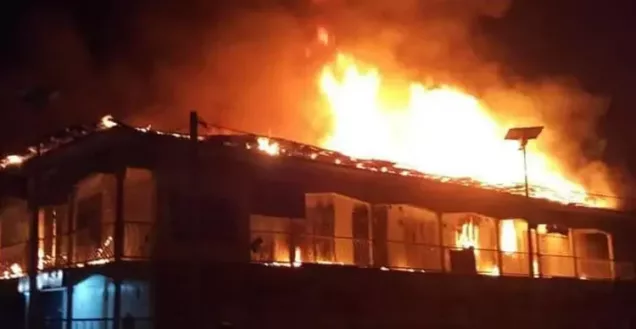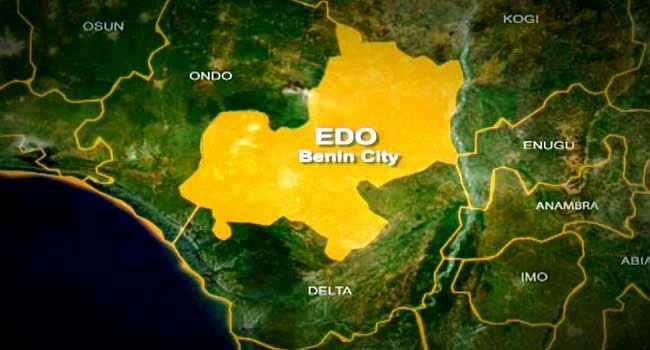Barely 48 hours after the reintroduction of the old colonial national anthem by President Tinubu in cahoots with the Akpabio-led National Assembly, a so-called ‘bill’ for an act to replace the 1999 Presidential constitution with a regional government has surfaced online. The social media was awash with the controversial proposal.
The sponsors of the regional arrangement have their plans mapped out already as the distasteful ‘draft bill’ although written by a previously unknown individual, one Dr Akin Fapohunda went viral. The sequence of events to ramp-up sentiments and pump the regional agenda into the mentality of Nigerians was followed by a high-pitch debate on both social and mainstream media.
These sequences of events are meant to test the waters towards a final daring move to present the bill on the floor of the National Assembly and possibly foist a regional system on Nigeria. We must bear in mind that a change to a regional government is not possible under a civilian administration because a civilian government cannot suspend the 1999 constitution. If the politicians do so, they have lost their seats because it is the 1999 constitution that brought them to office in the first place.
Only a military government can return the country to regions by suspending Nigeria’s constitution as they do when they take over, and replacing it with a constitutional model of their choice.
The Nigerian military actually created the presidential system to heal wounds and unify the country after the Civil War in 1967 so anyone trying to change the current presidential system back to a regional government is in effect, fighting the military.
The current presidential system was applied by the military during the Second Republic in 1979 because the regional arrangement had failed and had balkanised Nigeria into mini-states and created a culture of hate amongst the peoples in the regions. If Nigeria couldn’t survive the regional arrangement in the First Republic, it is extremely doubtful if it can today. A regional government in Nigeria will always promote war because of the deep mistrust between the constituent units.
The issue really is not about the regional model but the consequences of such models on most importantly, the unity, sovereignty and corporate existence of Nigeria.
Remember, even those who know the terrain very well including former Head of State, Abdulsalam Abubakar have advised President Tinubu to learn from past mistakes that led to the Civil War in order to promote the unity of the country and avoid a potential military takeover. This advice given by the highly experienced former Head of State in reference to Tinubu’s regional agenda is something to ponder about.
I feel and strongly too, that our dear country Nigeria is too fragile to survive a regional or parliamentary system. Currently, there is an unconventional ideological dismemberment of Nigeria. This is evidenced by the existence of major renegade secessionist cum terrorist groups such as IPOB, Boko haram and Yoruba nation agitators, who will take advantage of any regional arrangement to declare their own country and by implication, spur a civil war in Nigeria.
The clear red signals in the event of President Tinubu forcing a regional system on Nigeria are unmistakable as follows:
- The so-called Indigeneous People of Biafra (IPOB) in the South East geopolitical zone, a terrorist and secessionist group is calling for an end to Nigeria and a so-called presumptive state of Biafra. They are running riot in the South East, killing innocent people including our gallant soldiers.
- The Boko haram terrorists have been waging a war to cut off three states out of Nigeria namely, Borno, Yobe and Adamawa since 2009. If not for the commendable efforts of our gallant soldiers in pushing back Boko Haram, Borno and Yobe states would long have been history as they would have been carved out of Nigeria into a separate state by Boko Haram with possible encroachment into Adamawa and the entire North east geopolitical zone.
- The Yoruba nation agitators, also a terrorist group by virtue of their call for the dismemberment of Nigeria are pushing to carve out the six states in the South West geopolitical zone to form a so-called Oduduwa Republic. They are lighter renegades compared to the two terrorist groups described in 1 and 2 above and look to be interested in a so-called ‘regional integration’ rather than a full blown secession.
It is imperative to note that no member of the terrorist groups mentioned above has been charged to court for secession or treason. Nigeria’s extremely weak criminal justice system has not been able to convict or even prosecute any secessionist who is working to break up the country and cause a civil war, thus giving these renegades a blank cheque.
Clearly, the three groups described above are on standby and ready to declare separate nations in the unlikely event of Nigeria going back to regions. These are ominous signs indeed.
Without doubt, President Tinubu has started the process of taking Nigeria back to regions through the oft-repeated mantra of ‘restructuring. Obviously, the reintroduction of the colonial national anthem is meant to gauge people’s perception of the regional agenda before going to the next phase of introducing the bill on the floor of the National Assembly. Will the bill pass or fail? Will Tinubu achieve his long term dream of reinventing regions in Nigeria in line with the Awolowo’s legacy? Will the Northern senators who supported President Tinubu in 2023 fold their arms, close their eyes and vote for a regional government that will destroy what is left of Northern Nigeria?
The federal legislature is unofficially fragmented into the Southern and Northern senators’ forum and it is almost certain that Northern senators with a higher number of votes will oppose the bill. Can Northern senators kill the bill? It will be interesting to see what comes out of Tinubu’s regional idea.
Without mincing words, I am not in support of going back to regions mainly for the following reasons:
- It could possibly lead to another civil war.
- Going back to regions will mean a potential secession of Nigeria.
Secession is not a problem but if it happens, it will likely come with bloodshed. Nigeria is too fragile and fragmented to be dismantled into regions. The current fragile nature of the country cannot survive regions. A civil war could break out within 6 months of any regional system in Nigeria.
- The regional proposal could potentially lead to a military coup as they (the military) will have to intervene if the sovereignty of Nigeria is threatened. The present day Nigerian politicians will never agree on a template for regionalism. The legal framework will not be achievable. If you are to go back to regions, then you will have to replace the entire 1999 constitution. This matter is beyond constitutional amendment (I will discuss the legal implications of the regional agenda in the next Friday lines 32).
The politicians cannot agree on a new constitution. Remember, even a mere process of constitutional amendment has been a struggle since 1999.
It seems like the proponents of regionalism think that the North is a liability to them. As they say, they want to develop but the North is stopping them. How true could this be?
With Akpabio in the Senate and Tajudeen in the House of Representatives, the proponents of regions think it will be a smooth sail to amend the constitution to a regional parliamentary system. Will it fly as planned? Time shall tell.
Dr Alkali from Abuja











